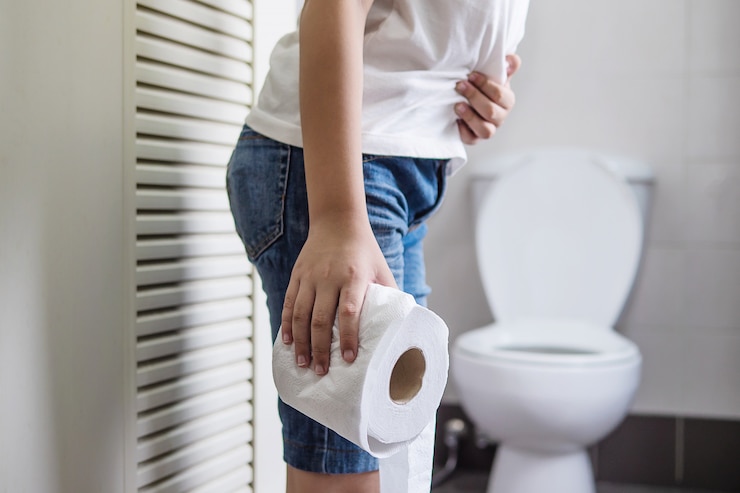
When I worked as a holistic nutritionist, the most frequent concern from clients was constipation. Many believed it was normal to have a bowel movement once every few days, or even once a week! But regular digestion and elimination are vital for detoxifying the body. If you’re not digesting well, you’re likely not absorbing all the nutrients from your diet.
Ideally, you should aim to have a bowel movement once to three times a day, and it should be easy to pass without straining. According to the Bristol Stool Chart, aim for a consistency of 3 or 4.
If constipation is an issue for you, this article is here to help! I’ll share natural diet and lifestyle tips to support your digestive health and get things moving smoothly.
1. **Stay Hydrated**
I often stress the importance of hydration. Drinking enough water each day is not only crucial for glowing skin but also for healthy digestion. From saliva to stomach acid, water is essential for digestion. If your body isn’t well-hydrated, your colon will reabsorb water from your stool, making it hard and difficult to pass. Besides drinking more water, consume hydrating foods like cucumbers, pears, apples, sweet potatoes, avocados, berries, and tropical fruits like melons, pineapples, and mangoes. You can also enjoy a cup of my favorite lemony ginger Everyday Detox Tea, which supports digestion with herbal ingredients like dandelion, burdock, and milk thistle.
2. **Increase Your Fiber Intake**
Before adding more fiber to your diet, ensure you’re staying hydrated. A lack of fiber often leads to constipation. Incorporate up to 30 different plants into your weekly meals to increase fiber intake. Fiber stimulates bowel movement contractions, moving food through the digestive tract. Not all fibers are equal, and some need ample water, like chia, psyllium, flax, and bran. Aim to eat a variety of fiber-rich foods, such as vegetables, nuts, seeds, oats, whole grains, and legumes. Soluble fiber (e.g., chia) absorbs water, while insoluble fiber (e.g., celery) helps retain water in your intestines, promoting movement.
3. **Support Your Gut Microbiome**
Your gut houses countless microbes that aid digestion and elimination. A diet high in sugar, refined carbs, and processed foods can lead to a less diverse range of beneficial bacteria. To encourage a healthy microbiome, eat a variety of fibers, including prebiotic fiber from vegetables like asparagus, onions, garlic, Jerusalem artichokes, dandelion greens, and apples. Include fermented foods, ensuring they are unpasteurized to retain beneficial bacteria.
4. **Engage in Regular Movement**
Exercise reduces stress and anxiety, which can affect digestion, and also helps prevent constipation. Regular movement stimulates circulation and bowel contractions. Find an activity you enjoy, such as walking, yoga, swimming, or group classes, and make it a regular part of your routine.
5. **Practice Belly Massage**
If constipation persists, try gently massaging your abdomen in a clockwise direction to stimulate digestive flow. You can also try yoga poses like hugging your knees to your chest or the happy baby pose.
6. **Schedule Bathroom Time**
Establish a routine for bathroom visits to promote regular bowel movements. Rushing through your morning routine can lead to skipped bathroom time, causing constipation.
7. **Use a Squatty Potty**
A Squatty Potty can help by positioning your body in a natural squatting position, which eases elimination. This tool raises your knees above your hips, fully relaxing the muscle involved in bowel movements.
8. **Check for Food Sensitivities**
If you’re doing everything right but still experience constipation, consider investigating potential food allergies or intolerances, such as gluten or dairy. Consulting with a health practitioner can help identify problem foods through an elimination diet.
I hope these tips help you maintain a healthy digestive system and improve your well-being!
Warm regards,
Joy


